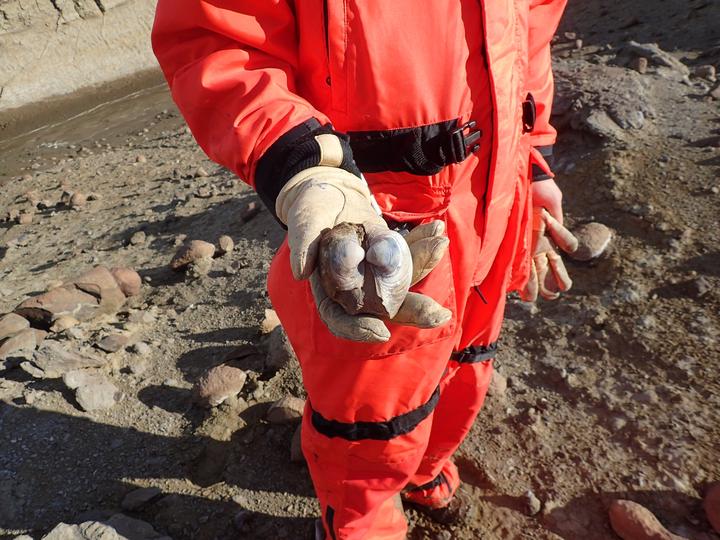Calcium isotope evidence for environmental variability before and across the Cretaceous – Paleogene mass extinction

Abstract
Carbon dioxide release during Deccan Traps volcanism and the Chicxulub impact likely contributed to the Cretaceous-Paleogene (K-Pg) mass extinction; however, the intensity and duration of CO2 input differed between the two events. Large and rapid addition of CO2 to seawater causes transient decreases in pH, [CO32–], and carbonate mineral saturation states. Compensating mechanisms, such as dissolution of seafloor sediment, reduced biomineralization, and silicate weathering, mitigate these effects by increasing the same parameters. The calcium isotope ratios (δ44/40Ca) of seawater and marine carbonates are hypothesized to respond to these perturbations through weathering/carbonate deposition flux imbalances and/or changes in fractionation between carbonate minerals and seawater. We used a high-precision thermal ionization mass spectrometry method to measure δ44/40Ca values of aragonitic bivalve and gastropod mollusk shells from the K-Pg interval of the López de Bertodano Formation on Seymour Island, Antarctica. Well-preserved shells spanning the late Maastrichtian (ca. 67 Ma) to early Danian (ca. 65.5 Ma) have δ44/40Ca values ranging from −1.89‰ to −1.57‰ (seawater [sw]). Shifts in δ44/40Ca inversely correlate with sedimentological indicators of saturation state. A negative excursion begins before and continues across the K-Pg boundary. According to a simple mass-balance model, neither input/output flux imbalances nor change in the globally integrated bulk carbonate fractionation factor can produce variations in seawater δ44/40Ca sufficient to explain the measured trends. The data are consistent with a dynamic molluscan Ca isotope fractionation factor sensitive to the carbonate geochemistry of seawater. The K-Pg extinction appears to have occurred during a period of carbonate saturation state variability caused by Deccan volcanism.